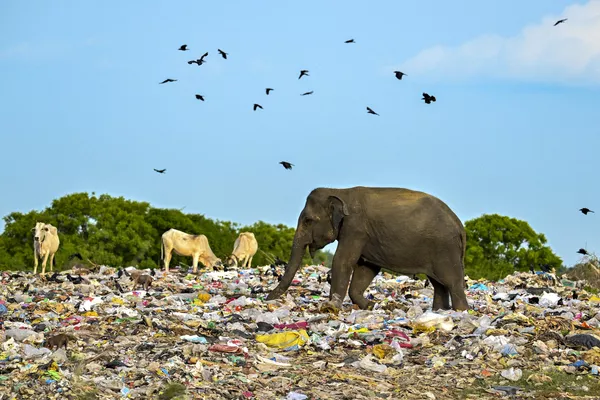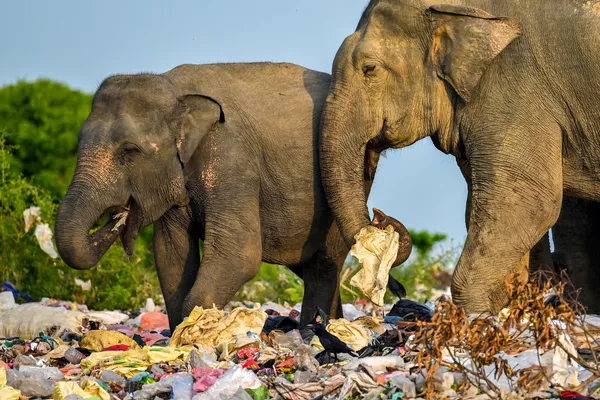
Sri Lanka is a country that is rich in biodiversity and is home to a diverse range of wildlife, including wild elephants and deer. Unfortunately, these animals face numerous threats, including habitat loss, poaching, and pollution. One of the biggest threats to their survival is plastic waste.
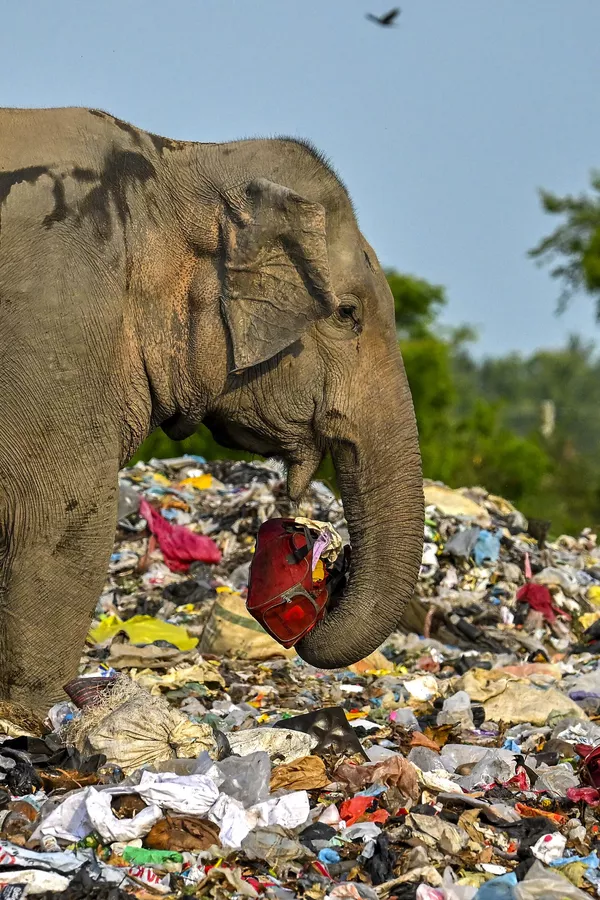
Plastic waste is a major environmental problem in Sri Lanka, as it pollutes the natural habitats of these animals. The plastic waste that is not properly disposed of ends up in the rivers, forests, and other areas where these animals live. This not only harms the wildlife but also the plants and other species that are dependent on these ecosystems.
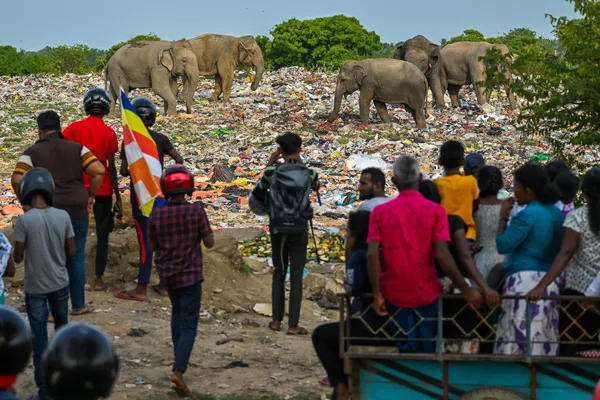
To combat this problem, Sri Lanka has taken several measures to reduce plastic waste. In 2018, the government banned the use of single-use plastic bags, plastic cutlery, and straws. This was a significant step towards reducing plastic waste and protecting the environment. The government has also implemented a policy to promote the use of reusable bags and containers and has encouraged businesses to switch to eco-friendly alternatives.
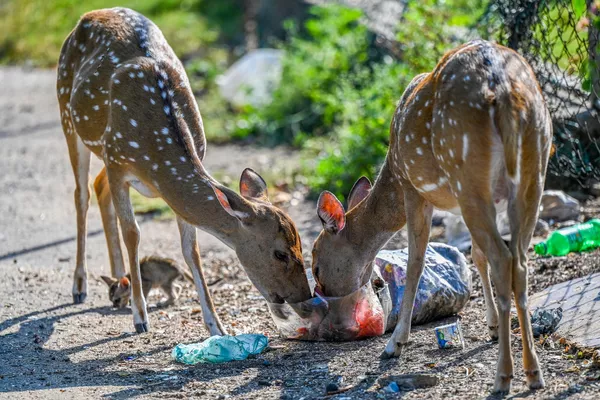
In addition to the government’s efforts, several non-governmental organizations (NGOs) are also working towards conservation and protection of wildlife. These NGOs conduct awareness programs and workshops to educate people about the importance of protecting wildlife and reducing plastic waste. They also organize clean-up drives to remove plastic waste from the natural habitats of animals and promote sustainable living practices.
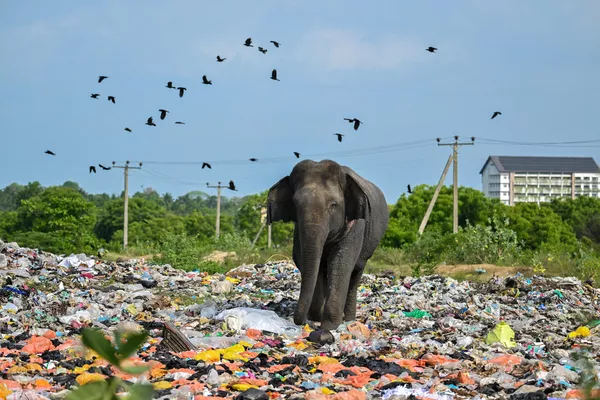
One such example is the “Let’s Protect Nature” campaign, launched by the Sri Lanka Wildlife Conservation Society. The campaign aims to reduce plastic waste and promote sustainable living. It encourages people to use reusable bags, bottles, and containers, and to properly dispose of their waste. The campaign also emphasizes the importance of reducing plastic waste for the protection of Sri Lanka’s wildlife and biodiversity.
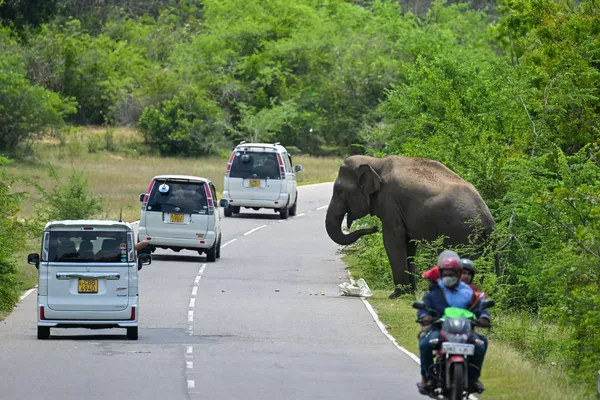
Another initiative is the “Green Schools” program, which is aimed at educating school children about the importance of protecting the environment and reducing plastic waste. The program encourages schools to adopt eco-friendly practices and to promote sustainable living among students. The program also provides students with the necessary tools and resources to become advocates for the protection of Sri Lanka’s wildlife and environment.
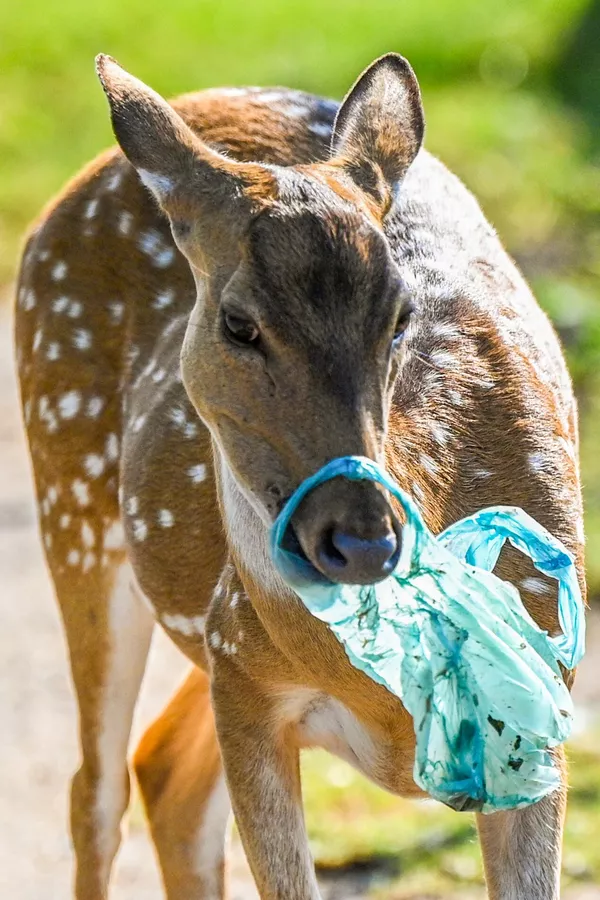
In conclusion, the conservation of Sri Lanka’s wild elephants and deer is crucial for the preservation of the country’s unique biodiversity. However, this cannot be achieved without addressing the issue of plastic waste. The government, NGOs, and individuals must work together to reduce plastic waste and protect the environment, thus ensuring the survival of Sri Lanka’s wildlife for generations to come. By taking concrete steps towards reducing plastic waste, Sri Lanka can become a model for sustainable living and conservation efforts around the world.
